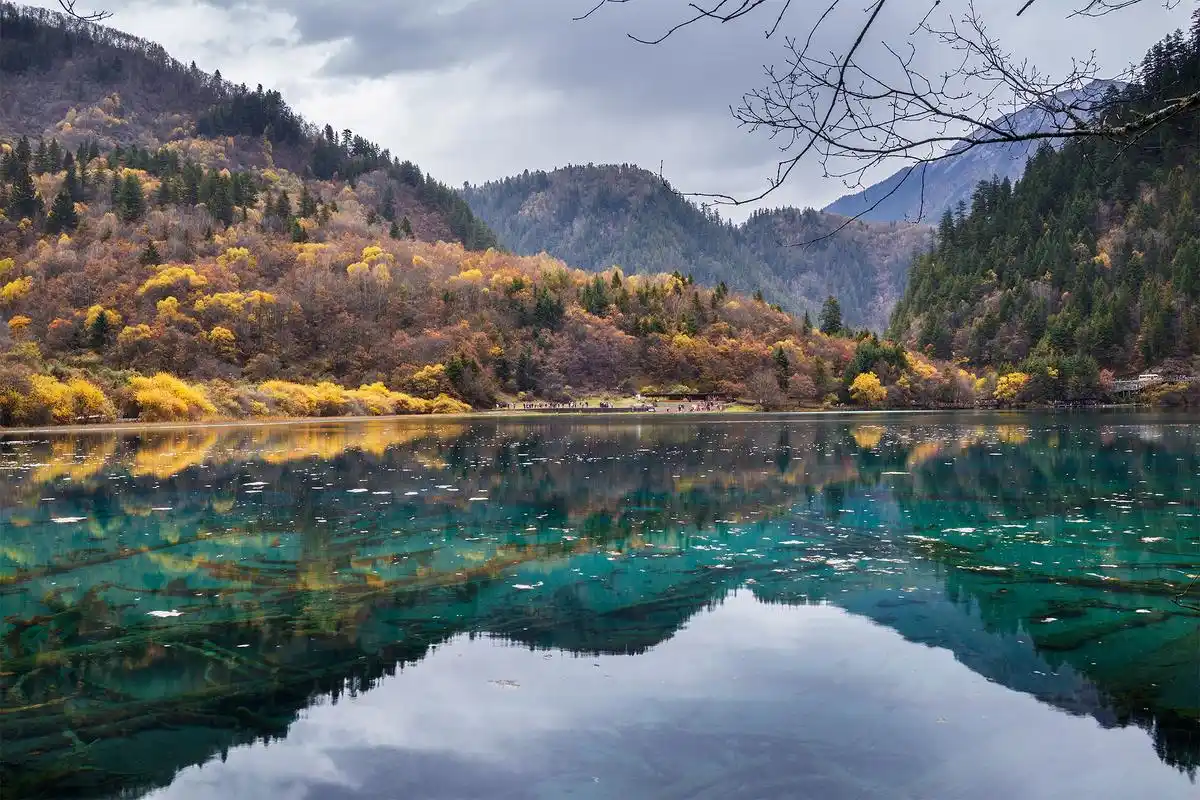France Travel
French Tourism Food Tours: Food Tours Combined With French Attractions, Taste Local Cuisine
Savoring France: A Culinary Journey Through Iconic Attractions and Local Cuisine
France, a country synonymous with culinary excellence, offers an unparalleled experience for food lovers. The concept of food tours here transcends mere dining; it is an immersive cultural journey that intertwines the nation’s rich history, breathtaking attractions, and unparalleled gastronomy. French tourism food tours provide a unique opportunity to explore iconic landmarks while indulging in local cuisine, creating memories that linger on the palate and in the heart.
The Essence of French Food Tours
French food tours are meticulously designed to offer a holistic experience. They are not just about tasting food but understanding the stories behind the dishes, the techniques of preparation, and the regions that inspire them. These tours often combine visits to historical sites, markets, vineyards, and restaurants, allowing travelers to appreciate the deep connection between French culture and its cuisine.

From the bustling streets of Paris to the serene vineyards of Bordeaux, each region offers distinct flavors and traditions. A food tour in France is a passport to discovering these diversities, guided by experts who are passionate about sharing their knowledge and love for French gastronomy.
Paris: The Epicurean Capital
No culinary journey in France is complete without exploring Paris, the city of light and gastronomic dreams. Food tours here often begin at iconic attractions like the Eiffel Tower or Notre-Dame, but quickly delve into the heart of Parisian life: its neighborhoods and markets.
Le Marais, with its cobblestone streets and historic architecture, is a favorite starting point. Here, travelers can sample traditional Jewish pastries like falafel or indulge in a classic croissant from a local boulangerie. The tour might include a visit to the Marché des Enfants Rouges, Paris’s oldest covered market, where vendors offer everything from fresh produce to ready-to-eat delicacies like coq au vin and ratatouille.
A highlight of Parisian food tours is the pairing of cuisine with culture. For instance, after visiting the Louvre, travelers might enjoy a wine and cheese tasting session featuring renowned French cheeses like Brie and Camembert, paired with wines from regions such as Burgundy or Champagne. This seamless blend of art and food enhances the appreciation of both.
Lyon: The Gastronomic Heartland
Lyon, often hailed as the culinary capital of France, offers a different yet equally enthralling experience. The city’s food tours are deeply rooted in its bouchons—traditional Lyonnaise restaurants serving hearty dishes like quenelles (fish dumplings) and andouillette (sausage made from tripe).
A tour of Lyon typically includes a visit to the Basilica of Notre-Dame de Fourvière, offering panoramic views of the city, followed by a descent into the traboules—hidden passageways that lead to vibrant food markets. The Halles de Lyon Paul Bocuse, a temple of gastronomy, is a must-visit. Here, travelers can taste local specialties such as Rosette de Lyon sausage, cervelle de canut (a herby cheese spread), and pralines roses (pink sugar-coated almonds).
Lyon’s food tours also emphasize the importance of terroir—the unique environmental factors that influence food production. Visitors might take a short trip to the Beaujolais vineyards to learn about wine-making and enjoy a tasting session, understanding how the region’s soil and climate contribute to the distinct flavors of its wines.
Provence: A Symphony of Flavors and Scents
Provence, with its sun-drenched landscapes and aromatic herbs, offers a food tour experience that engages all the senses. Tours here often combine visits to historical sites like the Palais des Papes in Avignon or the Roman amphitheater in Arles with explorations of local markets and olive groves.
The Marché d’Apt in Luberon is a vibrant showcase of Provençal produce: lavender honey, tapenade, socca (chickpea pancake), and an array of cheeses like Banon wrapped in chestnut leaves. Food tours in Provence frequently include cooking classes where participants learn to prepare dishes such as bouillabaisse (a traditional fish stew) or ratatouille using fresh, locally sourced ingredients.
The region’s natural attractions, such as the Verdon Gorge or the lavender fields of Valensole, are often part of the itinerary. Imagine enjoying a picnic of freshly baked baguettes, local cheeses, and a glass of rosé while overlooking fields of purple lavender—a truly sensory delight.
Bordeaux: Where Wine and Cuisine Converge
Bordeaux, renowned for its world-class wines, offers food tours that are a oenophile’s dream. The city itself, a UNESCO World Heritage site, is adorned with 18th-century architecture, and tours often include visits to landmarks like the Place de la Bourse and the Grand Théâtre.
However, the true essence of a Bordeaux food tour lies in its vineyards and wine châteaux. Travelers can explore the Médoc or Saint-Émilion regions, learning about the wine-making process and participating in tastings that highlight the nuances of Cabernet Sauvignon and Merlot. These tours are complemented by food pairings, such as entrecôte à la Bordelaise (steak with red wine sauce) or canelés (small caramelized pastries), which are designed to enhance the wine-tasting experience.
Bordeaux’s markets, like the Marché des Capucins, offer a glimpse into local life. Here, visitors can sample oysters from Arcachon Bay, paired with a crisp white wine from Graves, or indulge in foie gras, a regional delicacy.
Normandy and Brittany: Coastal Delights
The northern regions of Normandy and Brittany provide a contrasting yet equally captivating culinary journey. Food tours here focus on the bounty of the sea and the pastoral landscapes.
In Normandy, visits to the Mont-Saint-Michel or the D-Day landing beaches are often combined with tastings of camembert cheese, apple cider, and Calvados (apple brandy). The coastal town of Honfleur offers fresh seafood platters featuring oysters, mussels, and scallops, enjoyed with a view of the picturesque harbor.
Brittany, known for its rugged coastline and Celtic heritage, is the home of crêpes and galettes. A food tour in this region might include a visit to the walled city of Saint-Malo, followed by a crêpe-making workshop. Travelers can savor galettes (savory buckwheat crêpes) filled with ham and cheese, followed by sweet crêpes with caramel au beurre salé (salted butter caramel).
The Rhône-Alpes: Alpine Adventures and Savory Tastes
The Rhône-Alpes region, with its majestic Alps and vibrant cities like Grenoble and Annecy, offers food tours that combine outdoor adventures with culinary discoveries. After exploring the stunning Lake Annecy or skiing in Chamonix, travelers can warm up with a fondue savoyarde or tartiflette, hearty dishes made with local cheeses like Reblochon.
The region’s markets are filled with charcuterie, cured meats, and freshwater fish. A visit to a local fromagerie provides insight into the art of cheese-making, while a stop at a chocolaterie in Grenoble offers a sweet finish with chocolates infused with alpine herbs.
The Cultural and Social Impact
French food tours do more than just satisfy the palate; they foster a deeper understanding of French culture and traditions. They emphasize the importance of seasonal, locally sourced ingredients and the slow food movement, which values sustainability and quality over convenience.
Moreover, these tours support local economies by promoting small producers, family-owned farms, and artisan food makers. Travelers not only enjoy authentic experiences but also contribute to the preservation of culinary heritage.
Conclusion: A Journey for the Senses
French tourism food tours offer a unique way to experience the country’s iconic attractions and local cuisine. They are a celebration of France’s gastronomic diversity, from the buttery pastries of Paris to the robust wines of Bordeaux, the aromatic dishes of Provence to the hearty flavors of Lyon. Each tour is a narrative woven with history, culture, and food, inviting travelers to savor every moment and every bite.
In the words of the famous French chef Auguste Escoffier, “Good food is the foundation of genuine happiness.” Through these culinary journeys, travelers not only find happiness but also a lasting connection to the soul of France.
-
上一篇

French Attractions Hidden Beaches: Secret French Travel Beaches, Less Crowded Coastal Spots
**Title:UnveilingFrance’sHiddenBeaches:AJourneytoSecludedCoastalParadi
-
下一篇

French Attractions Cultural Heritage: UNESCO World Heritage French Travel Spots, Protected Cultural Sites
###TheTapestryofTime:ExploringFrance'sUNESCOWorldHeritageSitesFrance
相关文章
- French Attractions Luxury Experiences: VIP Access to French Travel Spots, Private Tours & Exclusive Events
- French Travel Group Discounts: Group Discounts at French Attractions, Savings for Tour Groups
- French Attractions Educational Tours: Educational French Travel Spots, School Trips & Learning Experiences
- French Tourism Pet Travel: Traveling With Pets to French Attractions, Pet-Friendly Accommodations & Spots
- French Attractions Adventure Sports: Extreme French Travel Spots, Paragliding, Rock Climbing & Rafting
- French Travel Relaxation Retreats: Retreats Near French Attractions, Yoga & Wellness Experiences
- French Attractions Cultural Heritage: UNESCO World Heritage French Travel Spots, Protected Cultural Sites
- French Attractions Hidden Beaches: Secret French Travel Beaches, Less Crowded Coastal Spots
- French Travel City Breaks: Short City Breaks to French Attractions, Paris, Nice & Toulouse
- French Attractions Mountain Resorts: Mountain Resorts Near French Travel Spots, Ski & Summer Activities
发表评论
评论列表
- 这篇文章还没有收到评论,赶紧来抢沙发吧~

